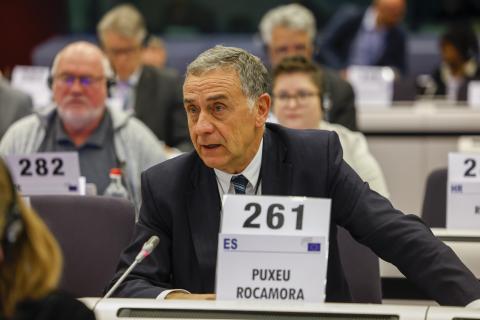European Economic
and Social Committee
Latin America needs a new social contract to stimulate economic recovery, while building a strong alliance with the EU
A new social contract for Latin America is needed, ensuring political accountability, inclusion, social protection and quality employment, said the European Economic and Social Committee (EESC) in its own-initiative opinion on the socio-economic situation in Latin America, following the pandemic. Freely and democratically organised civil societies are the best starting point.
The COVID-19 pandemic not only hit Latin America extremely hard, with an above-world-average death toll, but it also unveiled the weaknesses of the policies implemented over decades, which proved ineffective in facing the challenges imposed by the pandemic. The Russian invasion of Ukraine has exacerbated the economic turbulence by upsetting global delivery chains and contributing to increasing inflation.
The opinion entitled Socio-Economic situation in Latin America following the Covid-19 crisis – the role of civil society in the recovery process, adopted at the December plenary session, considers that the region needs a new social contract. This social contract needs to be achieved through cross-cutting agreements between socio-economic groups, between regions and between generations. This new beginning should ensure the respect of rights, and decent jobs with minimum living wages and collective bargaining, while just transition measures for climate and technology should be achieved through social dialogue.
The EESC strongly believes that citizens must play a key role in the transitions, by strengthening mechanisms for deliberation and participation, ensuring their accessibility and protection. The opinion underlines the need to restore trust through open and inclusive policy-making, creating clear communication strategies and social compensation systems.
Commenting on the role of civil society, EESC member and rapporteur for the opinion Josep Puxeu Rocamora stressed: Europe and Latin America are committed to democracy and the rule of law, which means that civil society will be actively involved, playing a leading role in development and in overcoming crises, promoting the necessary dialogue for a new social contract
.
In order for Latin America to deliver this new social deal, a stable and fiscally sustainable public expenditure policy is required. In a short-term framework, international cooperation initiatives, debt relief for low- and middle-income countries, restructuring, investments compatible with the Sustainable Development Goals (SDGs) and more efficient tax collection could help the region in the recovery process.
Alliance with the European Union
At the current juncture featuring many extremely serious challenges at the global, regional and national levels, Europe and Latin America could be ideal partners in an alliance for the defence of democracy, sustainability, social justice and multilateralism.
As such, Europe needs to strengthen its bonds with Latin America, especially focusing on the social, green and digital transitions. We urgently need to invest in more efforts to build alliances with like-minded partners in Latin America
, said Mr Puxeu Rocamora during the plenary debate, welcoming the signature of the pioneering EU-Chile Advanced Framework Agreement (AFA).
At the same time, he flagged up the need for the pending deals with Mexico and Mercosur to follow soon, while the window of opportunity is still open. We need reliable allies, and we have taken this relationship for granted for too long. We have to make an effort to catch up and we are facing strong competition from other actors right now
, added Mr Puxeu Rocamora.
The implementation of new approaches, which go beyond the old north-south paradigm and those relating to official development assistance (ODA), can be achievable by adopting new forms of multi-actor and multilevel partnership.
For example, the Global Gateway strategy aims to connect the world in a smart, clean and secure way in the digital, energy and transport sectors, and to strengthen health, education and research systems.
Europe and Latin America should be partners should be partners in an alliance for the defence of democracy, for fairer and more egalitarian economies and societies.This alliance requires the full recognition and participation of its organised civil societies, human rights organisations, trade union and business organisations, and environmental associations, among others.
Work organisation
Downloads
-
Latin America needs a new social contract to stimulate economic recovery, while building a strong alliance with the EU
